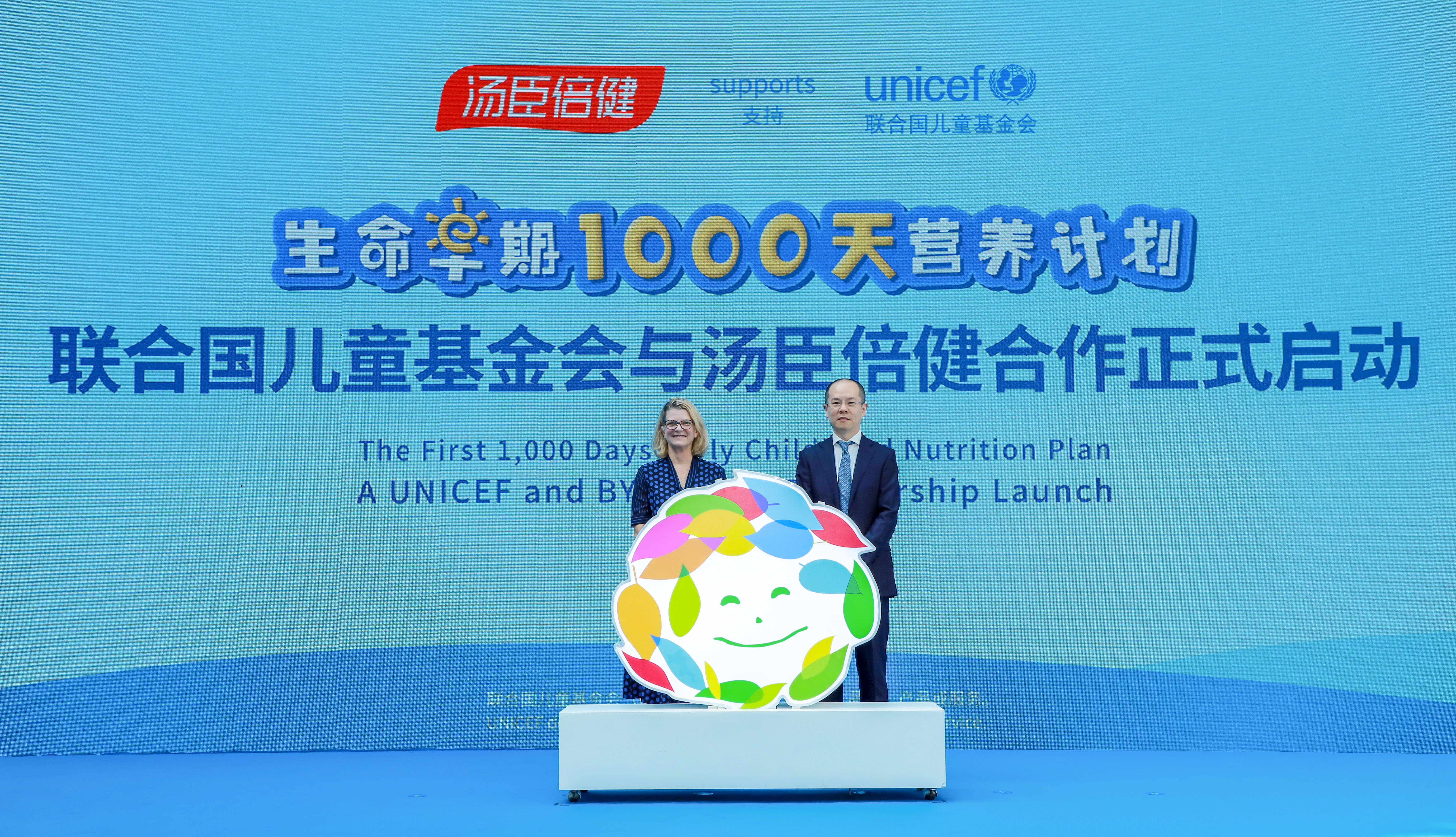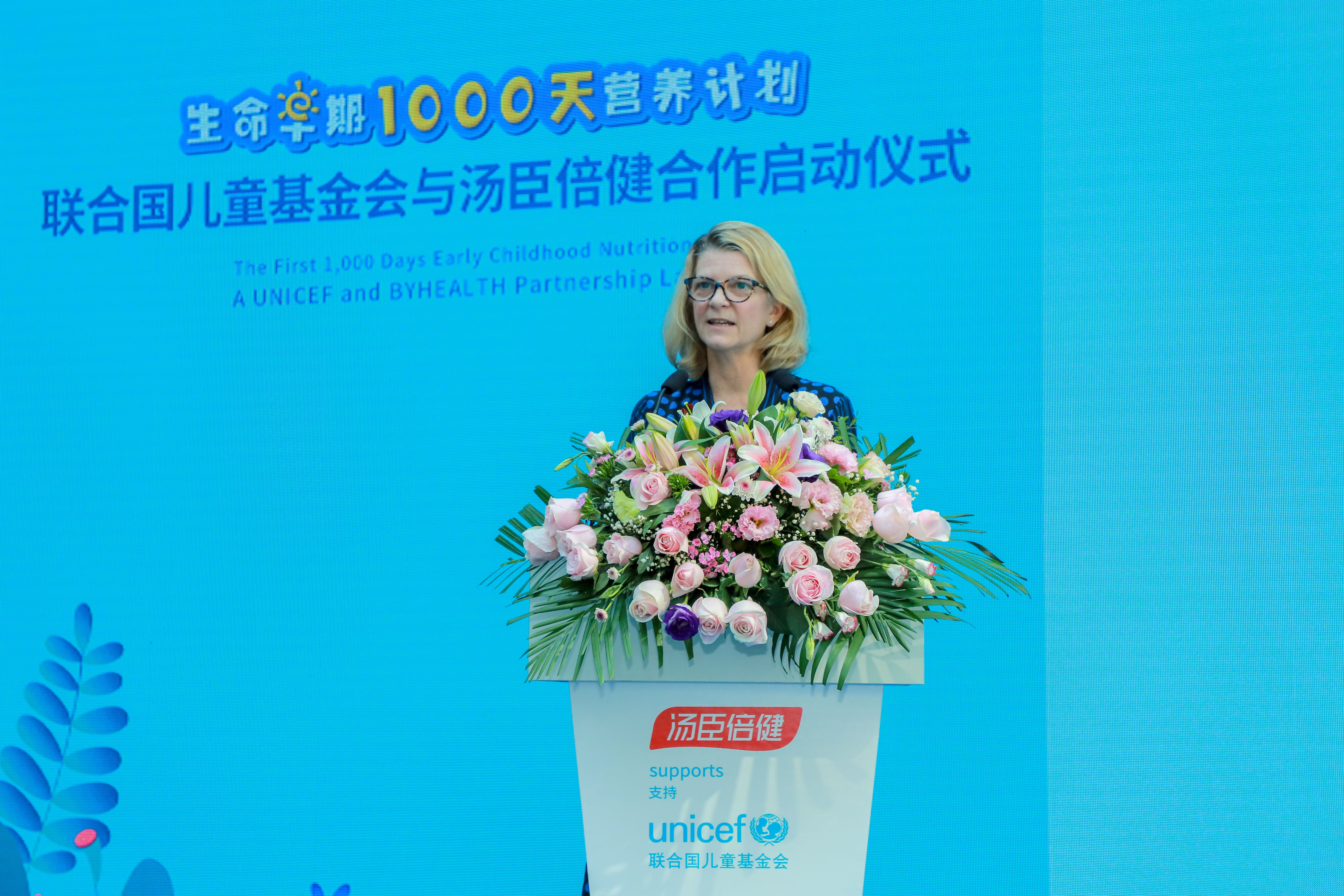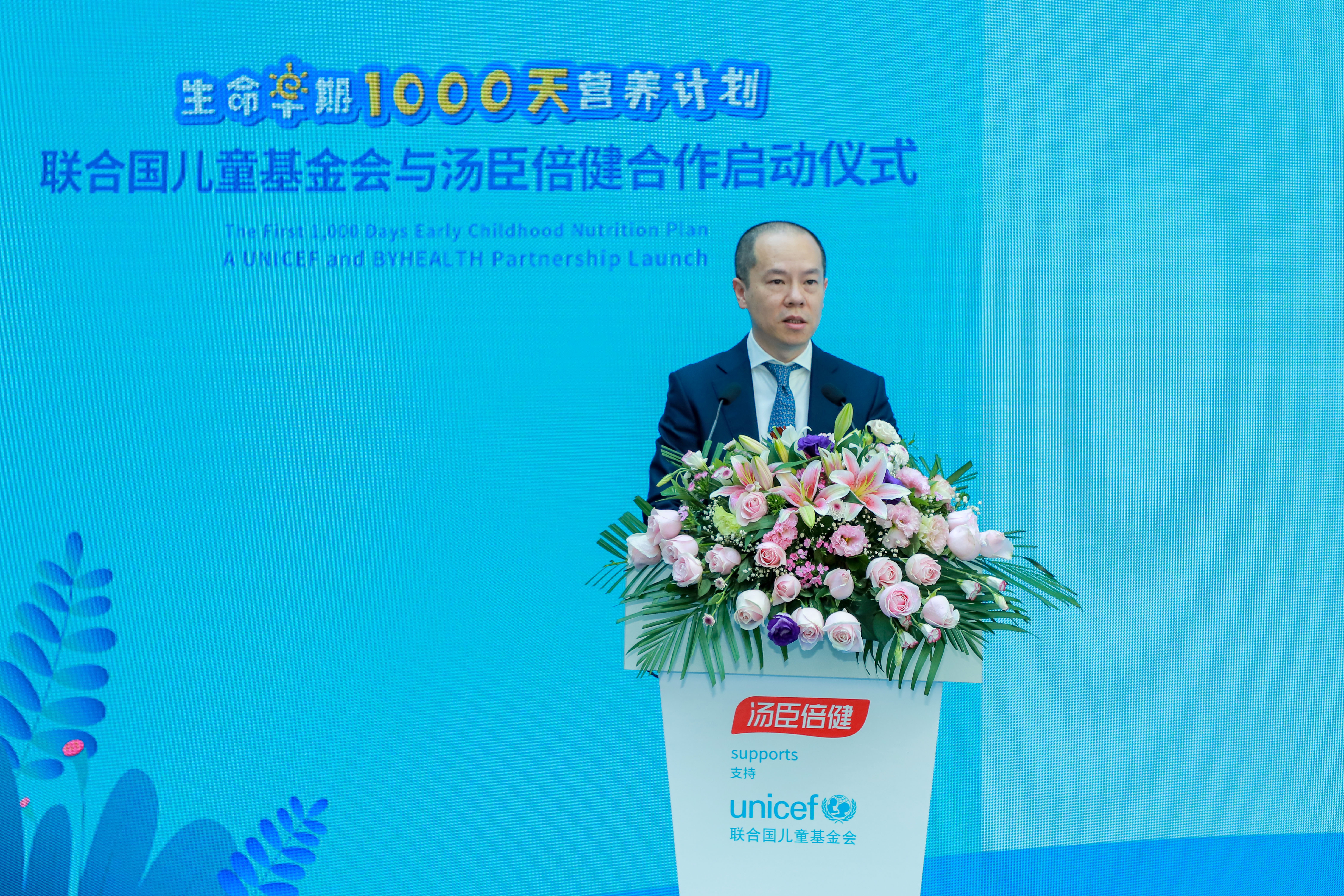
Corporate Social Responsibilities
On October 26, BYHEALTH and UNICEF launched a partnership in Zhuhai to improve nutrition in the first 1,000 Days of life. BYHEALTH will donate more than RMB 10 million to support UNICEF in strengthening infant and young child feeding practices as well as the policy and social environment in China from 2020 to 2022. This will be achieved through a series of strategic interventions in four areas: creating an enabling environment; strengthening capacity in the health system; building a social awareness and education campaign; and measuring progress and documenting results to ensure equitable access to nutrition support across the society.
Through programme delivery, BYHEALTH and UNICEF will jointly advocate and work to increase awareness of the importance of infant and young child nutrition. Both parties will disseminate evidence-based knowledge and call for a supportive environment so that children can equitably access nutrition support wherever they are.

Early childhood refers to the 1,000 days from the fetal period to the age of 24 months, which is called the “window of opportunity” in a person’s life. Studies have shown that nutritional interventions early in life have long-term benefits for growth and development, including improved health among adolescents and prevention of chronic diseases among adults.
Children’s nutrition in China has improved significantly thanks to rapid economic development and enormous investment by the government in child nutrition programmes. However, persistent challenges include weak access to and availability of skilled support for parents feeding infants and young children, and the absence of parents in children's upbringing due to employment circumstances.
As indicated by An Atlas of Social Indicators in 2018 jointly released by the National Working Committee on Women and Children, the National Bureau of Statistics and UNICEF, only 52.5% of infants and young children aged 6-23 months in China met the WHO’s criteria for minimal food diversity in their dietary intake. Salient issues such as a low breastfeeding rate, improper infant and young child feeding practices as well as social norms have resulted in increasingly higher rates of children being overweight or obese.
With the financial support of BYHEALTH, UNICEF and its partners will establish training centres for infant and young child feeding counselling, trainings for community health workers and community volunteers, and this will be rolled out to the whole country in the next three years. The programme will build up skilled human resources to deliver nutrition counselling and services for breastfeeding and complementary feeding throughout pregnancy, child birth and early childhood, and develop a circle of sustainable nutrition support.
Through children’s sketch books, an app and other channels, the programme will deliver nutrition education for families with children in this age group, to enhance the nutrition literacy of parents and young children alike, and raise the awareness of the public on the importance of “nutrition in the first 1,000 days”. The programme will also aim to facilitate behavioural changes in individuals, families and organizations by advocating for a family-friendly workplace to improve feeding practices for infants and young children, and create an enabling environment for healthy growth and development. Through strengthening the health management information system, the programme will collect infant and young child nutrition indicators and feeding data through surveys and continued monitoring, to promote more effective child nutrition interventions at the community level.
As Cynthia McCaffrey, UNICEF Representative to China, said at the launching ceremony, “As we recover from the COVID-19 crisis in China we have an opportunity to reimagine a better future for our children. A world where we can work to eliminate hunger and malnutrition and provide access to nutritious, affordable and sustainable diets that contribute to the survival, growth and development of children, and their communities.”

"Every company should fulfil its unshakable responsibility to contribute to the healthy development of society through focusing on food diversity for infants and young children as well as their general health," Lin Zhicheng, CEO of BYHEALTH stated that, children represent the future of humankind, so improving children's nutrition and health requires the active participation of the private sector, citizens and every family, in addition to the efforts of the government. In the future, BYHEALTH will continue to uphold its philanthropic philosophy of "Gain More and Share More ", continue to invest in advancing the maternal and child nutrition and health, and care for the healthy growth and development of children with more families.

